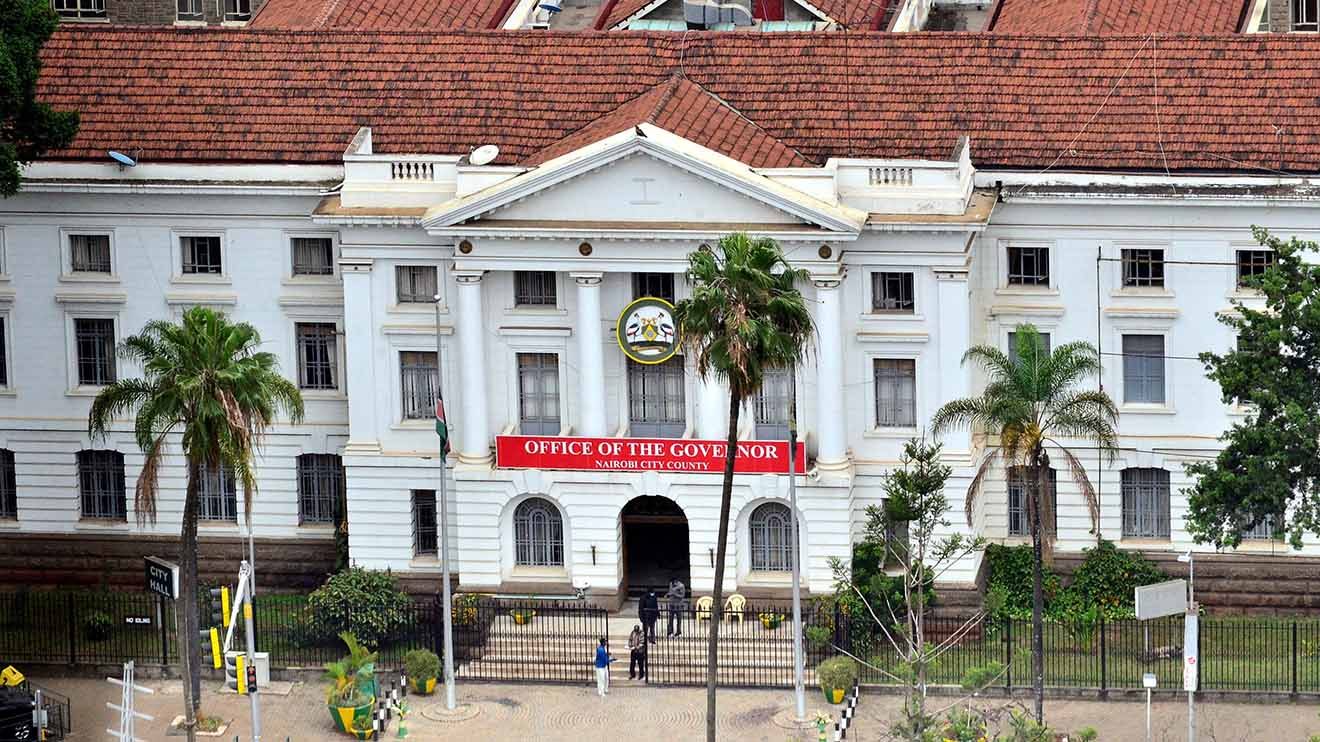Investigations
Corruption, Intimidation, and Land Grabs: The Troubling Legacy of City Hall’s Akivaga

Nairobi — The depths of corruption at Nairobi’s City Hall continue to unravel, as explosive revelations expose a tangled web of impunity, land fraud, and unexplained wealth involving both senior and junior officials.
At the center of the scandal are City Hall planning director Patrick Amado Akivaga and junior procurement officer Wilson Nahashon Kanani, whose cases, though distinct, highlight a disturbing pattern: City Hall officials accused of massive corruption remain in office, untouched by accountability mechanisms.
While Akivaga is under intense scrutiny for allegedly facilitating irregular zoning approvals and colluding with developers to grab public land, the Kanani case has ignited fresh public outrage after it was revealed he continues to draw a salary despite being accused of amassing over KSh 643 million in unexplained wealth—more than 11,000 times his monthly salary of KSh 55,000.
A Culture of Protection
Sources inside City Hall describe an entrenched system where whistleblowers are silenced, court orders are ignored, and corruption suspects—regardless of the weight of allegations against them—are shielded by political godfathers and bureaucratic inertia.
Kanani, a junior procurement officer, came under investigation by the Ethics and Anti-Corruption Commission (EACC), which uncovered assets totaling over KSh 1.05 billion—linked to him, his spouse, and close associates.
Despite only being able to account for KSh 407 million, the High Court initially ruled in his favor, declining to order the forfeiture of the remaining KSh 643 million to the state.
The EACC immediately filed a Notice of Appeal, terming the High Court decision “a step backward in the fight against corruption.”
EACC Spokesperson Eric Ngumbi, speaking from Istanbul, warned that the ruling sets a dangerous precedent that could embolden corrupt public officials.
“Allowing this judgement to stand would make it easier for officials to loot and walk away untouched,” Ngumbi said.
“It undermines public trust and sends the wrong message about impunity.”
Public Fury and Legal Concerns
The fact that Kanani remains on the payroll despite the damning findings has sparked fury among residents and anti-corruption campaigners.
“This man is accused of hiding hundreds of millions in questionable assets, and yet he still walks into City Hall every day like nothing happened,” said a city-based advocate.
“This is a mockery of justice.”
Activists have demanded that Kanani step aside pending the conclusion of the appeal process, a demand echoed by constitutional lawyers who argue that public officials facing such serious allegations should not be allowed to continue exercising public power.
Planning Office Under Siege
Meanwhile, Akivaga’s case has exposed the rot in Nairobi’s planning department.
Investigations show how his office greenlit multi-million-shilling developments—including 15-storey buildings in areas zoned for low-density housing—in blatant disregard of regulations and public interest.
In some cases, public land meant for parks and social amenities was converted into private real estate ventures.
Court petitions against such projects, including the controversial Chinese Blissful Residence in Kilimani, indicate that Akivaga’s approvals often ignored legal procedures and stakeholder consultations.
Developers with connections to his office are said to have received preferential treatment, while others who failed to “play ball” were subjected to unnecessary delays, rejections, or threats.
Former City Hall staff claim Akivaga’s power was so unchecked that he operated like a “mini-governor,” with little regard for oversight.
A Broken System?
That both Kanani and Akivaga remain in office despite widespread condemnation is symptomatic of a systemic failure in Nairobi’s governance.
Critics say City Hall has become a haven for illicit deals, where personal enrichment takes precedence over public service.
“What we are seeing is not just about two individuals,” said a senior urban planner. “This is about a culture of impunity. When even junior officers can hide over a billion shillings in wealth and remain employed, what hope does Nairobi have?”
With pressure mounting on Governor Sakaja’s administration to act decisively, the public waits to see whether justice will finally catch up with the corruption cartels that have long plagued City Hall.
Kenya Insights allows guest blogging, if you want to be published on Kenya’s most authoritative and accurate blog, have an expose, news TIPS, story angles, human interest stories, drop us an email on [email protected] or via Telegram
-

 Investigations1 week ago
Investigations1 week agoBillions Stolen, Millions Laundered: How Minnesota’s COVID Fraud Exposed Cracks in Somali Remittance Networks
-

 News1 week ago
News1 week agoUS Moves to Seize Luxury Kenya Properties in Sh39 Billion Covid Fraud Scandal
-

 News1 week ago
News1 week agoMAINGA CLINGS TO POWER: Kenya Railways Boss Defies Tenure Expiry Amid Corruption Storm and Court Battles
-

 Investigations1 week ago
Investigations1 week agoJulius Mwale Throws Contractor Under the Bus in Court Amid Mounting Pressure From Indebted Partners
-

 Americas1 week ago
Americas1 week agoUS Govt Audits Cases Of Somali US Citizens For Potential Denaturalization
-

 Americas3 days ago
Americas3 days agoTrump Says US Needs Greenland For Its National Security
-

 Business20 hours ago
Business20 hours agoEastleigh Businessman Accused of Sh296 Million Theft, Money Laundering Scandal
-

 Politics23 hours ago
Politics23 hours agoHow Ruto-Moi Deal Died After Temporary State House Ceasefire
















